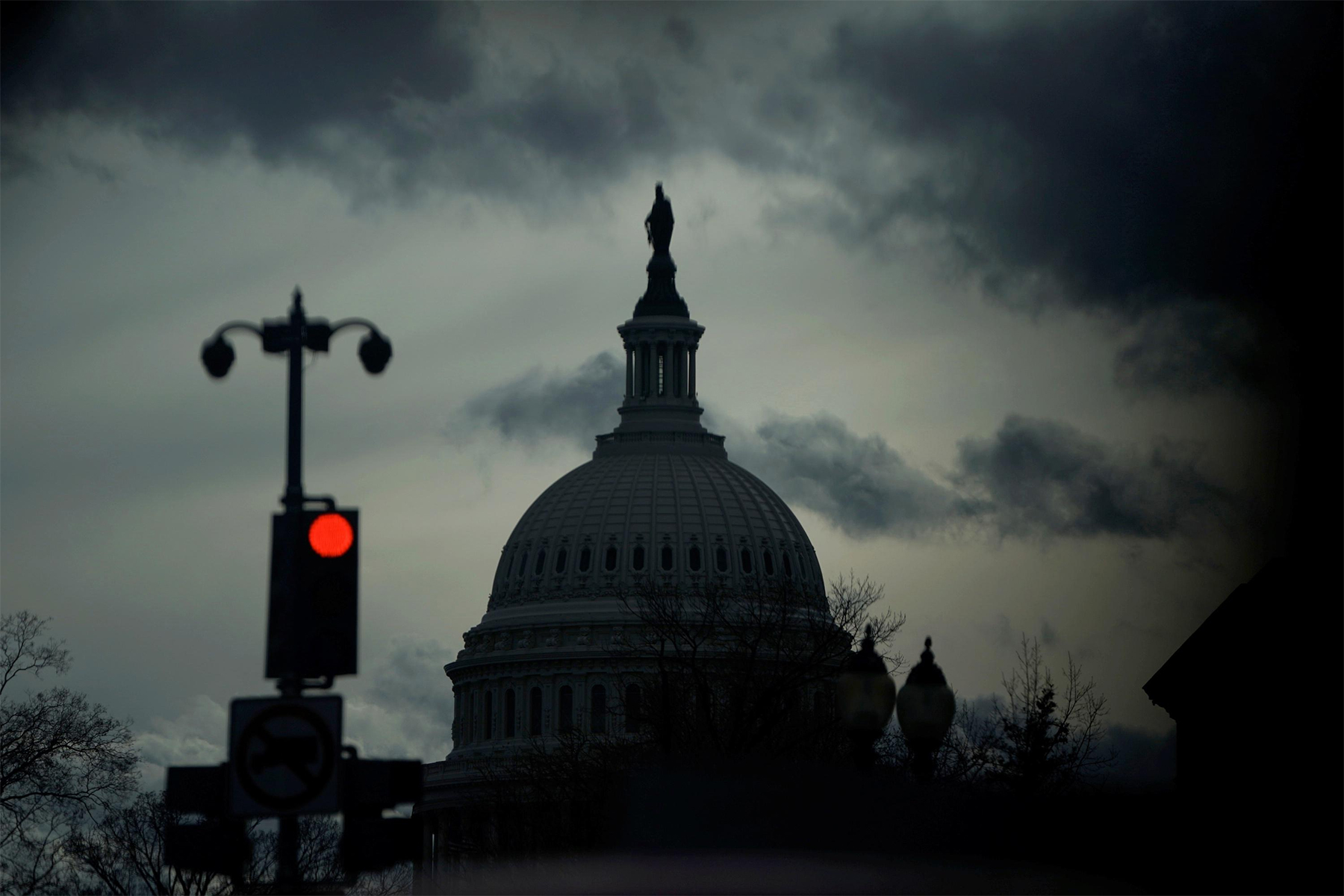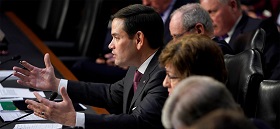The adoption of an amendment to the defense budget for 2020 by the US House of Representatives provoked a public outcry in Russia. The amendment, introduced by Brad Sherman (D), is to prohibit buying of the Russian sovereign debt in retaliation for meddling in US elections. Many Russian media outlets carried alarmist or even panicky headlines. Indeed, the amendment is far from being good news, like any sanctions against Russia. However, what matters here are details and a sober-minded attitude.
The chances of passing the amendment are not clear so far. It will not bring the Americans much benefit in their relations with Russia. Most probably, vice versa. The next round of sanctions may disrupt the dialogue on arms control, which is of interest to the United States. Moscow is not going to grapple with all the ins and outs of the US domestic policies and may well freeze the dialogue.
Sanctions against the “new” Russian debt will not cause US investors as much loss as restrictions against the debt obligations in general. Neither will they bring any benefit: US investors could just find themselves facing worse conditions than other foreigners, i.e. the damage will amount to lost profits. Neither will the Sherman initiative do much harm to Russia. Considering that no interference was established in the midterm elections, the amendment may boil down to tilting at windmills. Although it will not make things better for the investors. Any new sanctions raise their uncertainty and risk regardless of the political outcome.
The adoption of an amendment to the defense budget for 2020 by the US House of Representatives provoked a public outcry in Russia. The amendment, introduced by Brad Sherman (D), is to prohibit buying of the Russian sovereign debt in retaliation for meddling in US elections. Many Russian media outlets carried alarmist or even panicky headlines. Indeed, the amendment is far from being good news, like any sanctions against Russia. However, what matters here are details and a sober-minded attitude.
First of all, the fact that the US Congress adopts sanctions and other major initiatives by amending the defense budget act is nothing out of the usual. For instance, the defense budget for 2013 was used to pass the Iran Freedom and Counter-Proliferation Act (IFCA of 2012). Sanctions initiatives can be combined into groups, as it happened to PL 1115-44 (Countering America's Adversaries Through Sanctions Act, or CAATSA), where sanctions were levelled at Russia, as well as Iran and North Korea. This is the “trailer” or “train” logic: smaller issues can be dealt with quicker when they are incorporated into a major project.
First of all, the fact that the US Congress adopts sanctions and other major initiatives by amending the defense budget act is nothing out of the usual. For instance, the defense budget for 2013 was used to pass the Iran Freedom and Counter-Proliferation Act (IFCA of 2012). Sanctions initiatives can be combined into groups, as it happened to PL 1115-44 (Countering America's Adversaries Through Sanctions Act, or CAATSA), where sanctions were levelled at Russia, as well as Iran and North Korea. This is the “trailer” or “train” logic: smaller issues can be dealt with quicker when they are incorporated into a major project.
DETER is another well-known bill that stipulates sanctions against the Russian sovereign debt. There are several versions of DETER, the first of which, entitled Defending Elections from Threats by Establishing Redlines Act, was introduced on January 16, 2018. The bill, submitted by Senators Chris Van Hollen and Marco Rubio, focused on the interference problem only. The condition for imposing sanctions was the determination by the Director of National Intelligence that Russia had interfered in the US elections. Therefore, sanctions were supposed to be a response to interference and not a preventive measure. However, as was the case with the DASKAA, debt restrictions were included in a long list of much stricter measures, ranging from blocking Russian government assets to restrictions against major Russian banks and energy companies. An important component of DETER was the condition for lifting the sanctions: noninterference in US elections for at least two presidential election cycles. Senator Rubio later submitted an updated version of DETER, which did not, however, introduce any fundamental innovations.
We should note that there is one more version of DETER: the Defending Elections against Trolls from Enemy Regimes Act. Its latest edition was submitted on June 4, 2019, and has nothing to do with the sanctions discussed above. Its sole purpose is to make amendments to the Immigration and Nationality Act, which make it possible to deny visas or deport from the United States any individuals involved in US election interference. The bill has already passed the Senate, unlike the DASKAA and the other version of DETER.
Finally, the bill To Respond to and Deter Russian Attacks on the Integrity of United States Elections, and for Other Purposes was submitted in May 2019. The bill reproduced the usual set of measures like the first DETER and the DASKAA in terms of their logic but was different in some details. Russia’s sovereign debt was also mentioned there in the standard wording. Indeed, the document was half-baked and by all appearances did not go any further.
The Trump administration has not been sitting on its hands either. On September 12, 2018, Donald Trump signed Executive Order 13848 Imposing Certain Sanctions in the Event of Foreign Interference in a United States Election. The executive order appeared on the eve of the midterm elections. It stipulates that sanctions are to be introduced if the Director of National Intelligence, in consultation with other relevant agencies, establishes the fact of interference and reports thereof no later than 45 days after the elections. Should the fact of interference be discovered, any property of the persons implicit in the interference located in the United States is to be frozen. In addition, it obliged the relevant agencies to prepare recommendations for the president as to what other sanctions could be applied. The nine possible measures include the prohibition for US entities and individuals to invest in or contribute to the debt obligations of a sanctioned person. In other words, the administration intended to apply sanctions only in the event of another interference, which was not established after the elections to Congress.
The Sherman amendment is a mixture of the DASKAA, DETER and Executive Order 13848. It borrowed the prime focus on interference in elections from DETER and the executive order. However, unlike them it provides for imposing sanctions immediately, regardless of whether the fact of interference has been established or not. It looks like the developments of 2016, which the Congress regards as a hard fact, provide sufficient grounds.
In this respect, the amendment is closer to the DASKAA. Compared to all the preceding documents, its novelty boils down to the focus on restrictions against Russia’ sovereign debt. That said, it is targeted at new debt obligations issued 180 days after the amendment is enacted. The document does not mention any other sanctions although all previous acts, orders or bills proposed sets of sanctions. Unlike Executive Order 13848, the draft amendment is spearheaded only against Russia and therefore is not universal.
The Sherman amendment is more flexible than DETER in terms of lifting the sanctions. At any rate it does not require at least two election cycles without interference. After the next federal elections the Director of National Intelligence, in consultation with other agencies, will establish or refute the fact of interference. In the absence of interference the sanctions should be lifted. However, this will require a joint resolution by the Congress that is supposed to confirm the intelligence agency’s opinion. The sanctions cannot be lifted without such resolution, i.e. the Congress allows for the possibility that the president will put pressure on the intelligence agency.
Another important aspect is that the amendment defines the term “interference in elections” (there were such attempts in DETER). It means unauthorized access to electoral infrastructure, financial investment in political advertising and use of social and traditional media with the aim of misinforming US citizens. The last item seems vulnerable to a broad interpretation, especially with respect to the traditional media. Yet the amendment specifies that the interference provision does not apply to the media that does not conceal its government funding. Therefore, RT and Sputnik broadcasts are unlikely to be interpreted as interference if the amendment is passed unchanged.
Nevertheless, the chances of passing the amendment are not clear so far. It will not bring the Americans much benefit in their relations with Russia. Most probably, vice versa. The next round of sanctions may disrupt the dialogue on arms control, which is of interest to the United States. Moscow is not going to grapple with all the ins and outs of the US domestic policies and may well freeze the dialogue.
Sanctions against the “new” Russian debt will not cause US investors as much loss as restrictions against the debt obligations in general. Neither will they bring any benefit: US investors could just find themselves facing worse conditions than other foreigners, i.e. the damage will amount to lost profits. Neither will the Sherman initiative do much harm to Russia. Considering that no interference was established in the midterm elections, the amendment may boil down to tilting at windmills. Although it will not make things better for the investors. Any new sanctions raise their uncertainty and risk regardless of the political outcome.
First published in Valdai Discussion Club.







